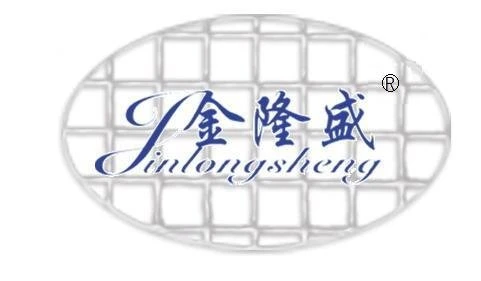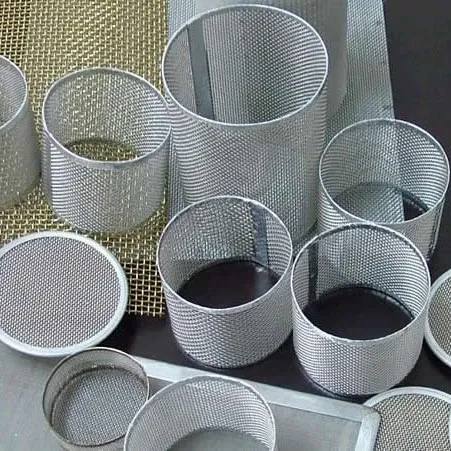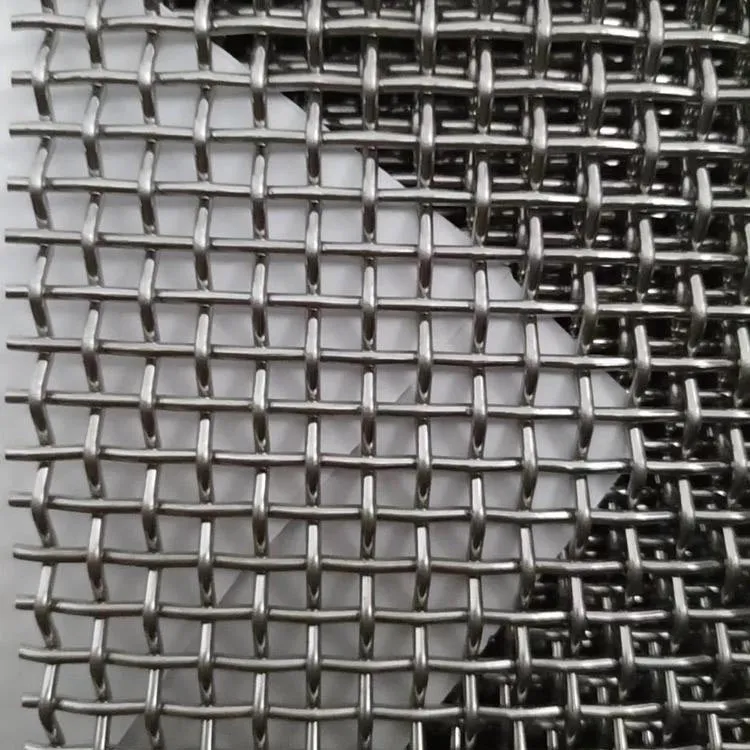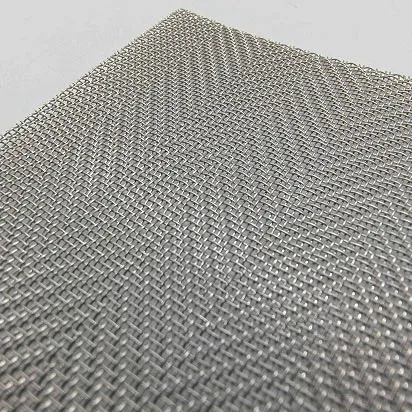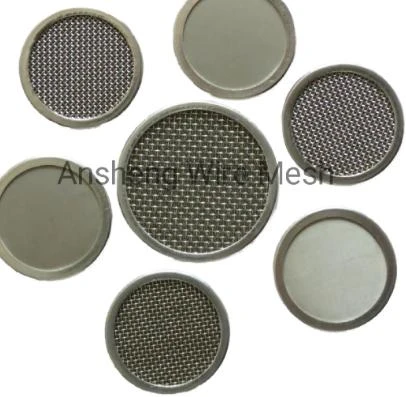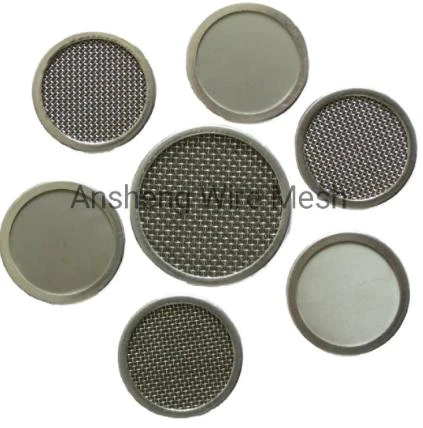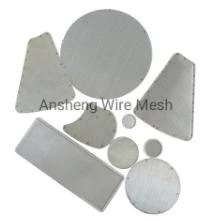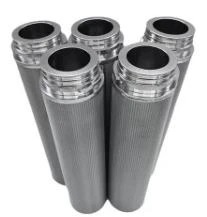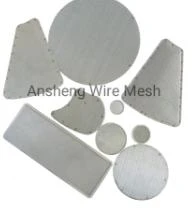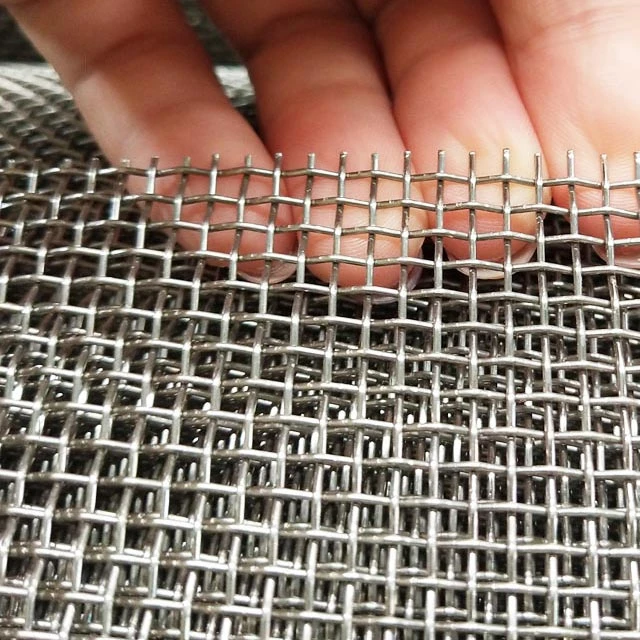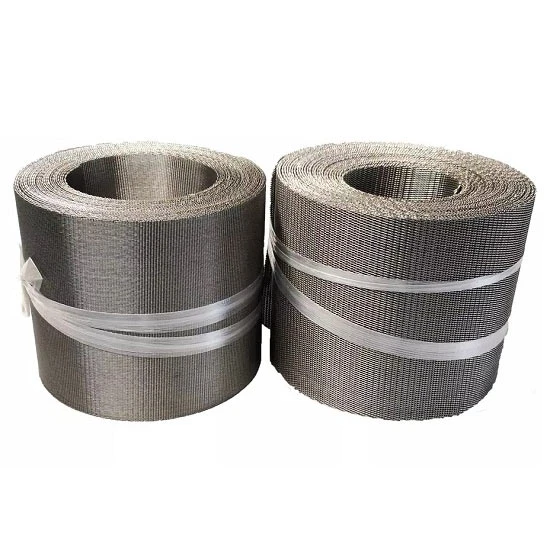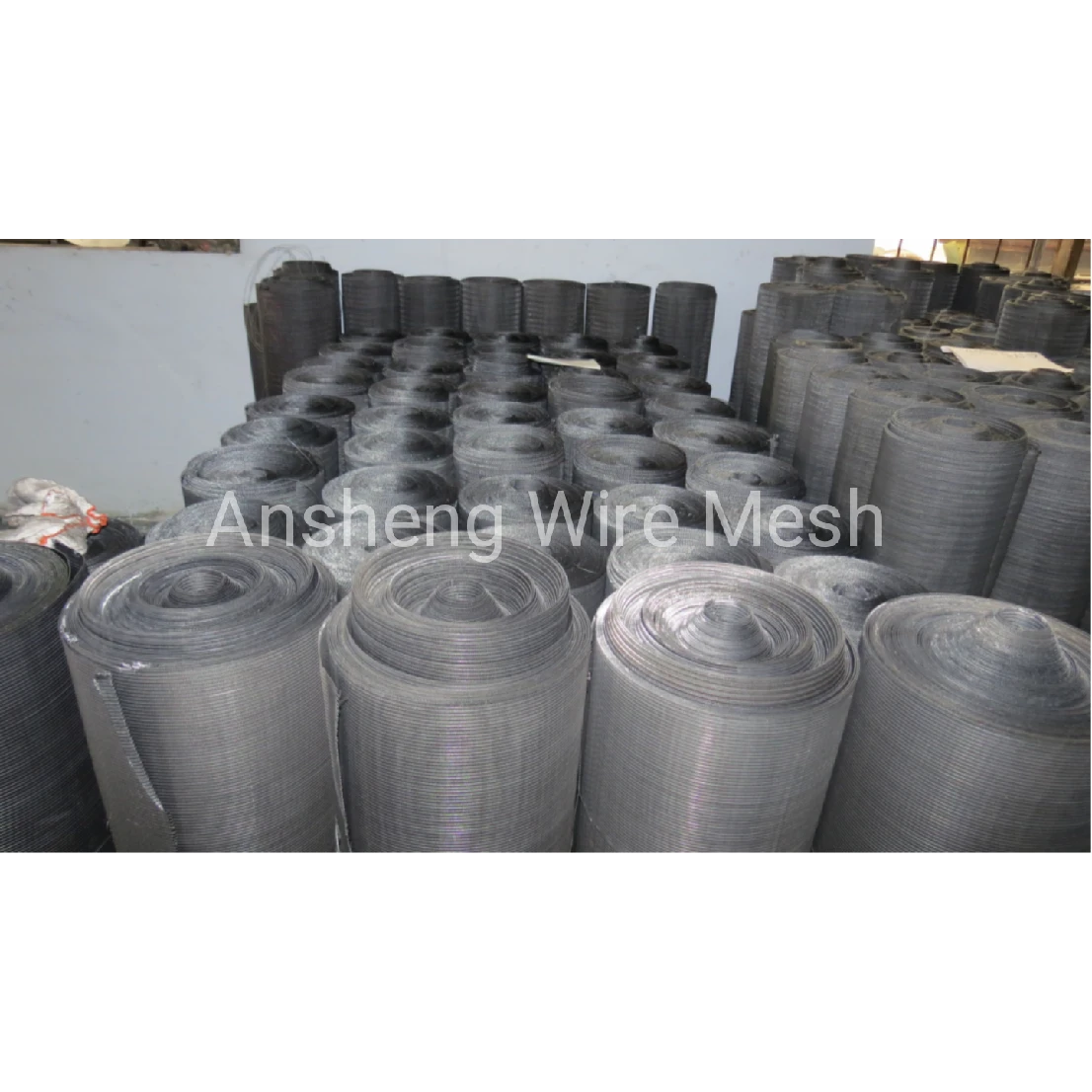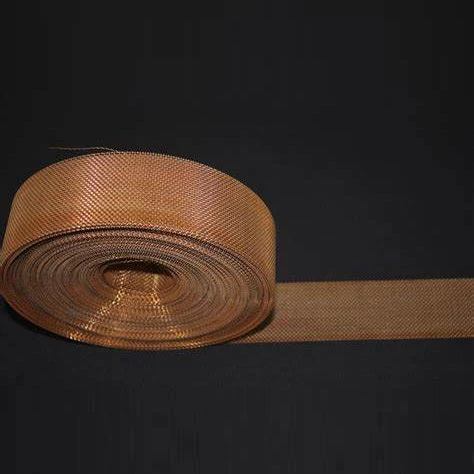Understanding Dutch Weave Mesh: An Essential Component in Advanced Filtration
In the realm of industrial filtration and separation, the choice of mesh is paramount to operational efficiency and product purity. Among the specialized woven wire meshes, dutch weave mesh stands out for its exceptional strength, precise pore size, and remarkable filtration capabilities. This highly engineered product, often manufactured from stainless steel, is distinguished by its unique weaving pattern where warp wires are heavier and spaced further apart than the weft wires. The weft wires are then driven tightly together, creating a dense, robust, and often conical pore structure. This configuration results in superior mechanical stability and a high dirt-holding capacity, making it indispensable across a spectrum of demanding industries.
The demand for sophisticated filtration media is continuously evolving, driven by stringent environmental regulations, the need for enhanced process efficiency, and the increasing complexity of chemical and material processing. Industries are seeking solutions that offer not only superior filtration but also extended service life, resistance to harsh operating conditions, and cost-effectiveness. The market for high-performance wire mesh, particularly dutch weave wire mesh, is experiencing steady growth, propelled by innovations in material science and weaving technology. Key trends include the development of finer meshes for ultra-filtration, the integration of advanced alloys for extreme temperature and corrosive environments, and the optimization of weave patterns for specific flow dynamics. Manufacturers are also focusing on providing customizable solutions to meet the unique requirements of diverse applications, moving beyond standard specifications to offer tailored engineering support.
The Precision Manufacturing Process of Dutch Weave Wire Mesh
The creation of high-quality dutch weave mesh is a testament to precision engineering and metallurgical expertise. The manufacturing process is meticulously controlled to ensure consistent product integrity and performance, adhering to rigorous industry standards such as ISO 9001 for quality management and ASTM E2814 for wire mesh specifications.
Key Process Steps:
- Material Selection & Preparation: The process begins with the careful selection of raw materials, predominantly high-grade stainless steel alloys such as SS304, SS316, SS316L, and SS310S. These materials are chosen for their superior corrosion resistance, high tensile strength, and heat resistance, making them ideal for challenging industrial environments. Wire rods undergo drawing to achieve precise wire diameters for both warp (longitudinal) and weft (transverse) wires. This step is critical as it dictates the final mesh's structural integrity and filtration characteristics.
-
Weaving (Precision Loom Operation): The prepared wires are then loaded onto specialized weaving looms. Unlike plain or twill weaves, dutch weave screen involves driving the weft wires very close together, creating a dense, wedge-shaped opening. This intricate weaving pattern is executed by advanced, computer-controlled looms that ensure uniform tension and precise alignment of wires. The weft wires are typically finer and more numerous than the warp wires, creating a zero-mesh count in one direction and a high count in the other, which is fundamental to its filtration capabilities.
- *Plain Dutch Weave:* Weft wires pass over one and under one warp wire, packed tightly to form a tapered opening.
- *Twill Dutch Weave:* Weft wires pass over two and under two warp wires, allowing for even finer filtration and greater strength than plain dutch weave. This is also known as dutch twill weave.
- Annealing & Post-Weaving Treatment: After weaving, the mesh may undergo annealing to relieve internal stresses induced during the drawing and weaving processes. This heat treatment enhances the material's ductility and resistance to fatigue, improving its overall service life. Further cleaning processes, such as ultrasonic cleaning, remove any lubricants or contaminants from the weaving process, ensuring the mesh is pristine for demanding applications.
- Quality Control & Testing: Each batch of dutch mesh undergoes rigorous quality control. This includes visual inspection for weaving defects, precise measurement of mesh opening sizes (typically in microns), wire diameters, and overall dimensions. Tensile strength tests, burst pressure tests, and material composition analysis (e.g., using XRF spectrometry) are conducted to ensure compliance with international standards (e.g., ISO 3310-1 for test sieves, ANSI/AWWA C207 for flange connections when used in filter components). These tests confirm the mesh’s ability to withstand specific pressures and environmental conditions, guaranteeing a long service life, often exceeding 5-10 years in typical operational conditions when properly maintained.
- Cutting & Fabrication: The finished rolls of mesh are then cut to specified dimensions, often using CNC machining for precision, and can be further fabricated into various forms such as filter discs, cylinders, or elements for integration into larger filtration systems. Advanced laser cutting and welding techniques are employed to maintain the mesh's structural integrity during fabrication.
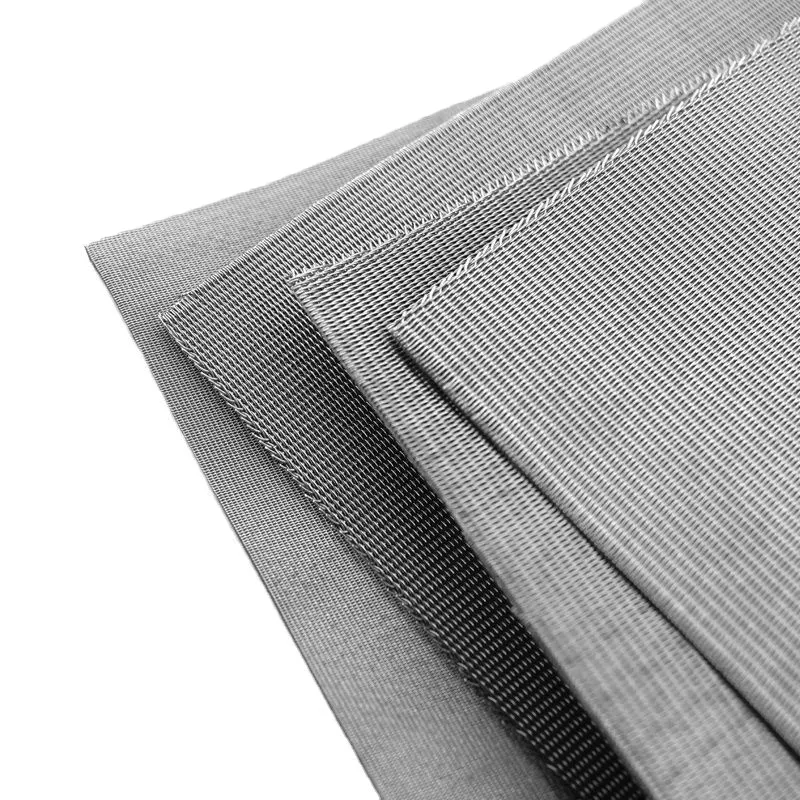
Figure 1: Illustration of a precision-woven dutch weave mesh structure.
Target industries benefiting from this meticulous process include petrochemical, oil & gas, chemical processing, food & beverage, pharmaceuticals, water supply & drainage, and aerospace. The inherent advantages, such as superior filtration efficiency, robust construction, and excellent corrosion resistance, translate directly into benefits like energy saving due to reduced pump backpressure and significantly extended equipment lifespan.
Technical Specifications and Parameters of Stainless Steel Dutch Weave Wire Mesh
The efficacy of dutch weave mesh is quantified by a range of precise technical specifications. Understanding these parameters is crucial for engineers and procurement specialists to select the optimal mesh for their specific application requirements. Key parameters include wire diameter, mesh count (nominal in one direction, high in the other), weave type, and most importantly, the micron rating or nominal filtration rating.
| Weave Type | Mesh Count (Warp x Weft) | Warp Wire Dia. (mm) | Weft Wire Dia. (mm) | Nominal Micron Rating (µm) | Weight (kg/m²) (Approx.) |
|---|---|---|---|---|---|
| Plain Dutch | 10 x 80 | 0.45 | 0.30 | 220 | 2.10 |
| Plain Dutch | 20 x 150 | 0.30 | 0.20 | 100 | 2.45 |
| Plain Dutch | 30 x 250 | 0.25 | 0.18 | 50 | 3.10 |
| Twill Dutch | 20 x 250 | 0.35 | 0.25 | 40 | 3.80 |
| Twill Dutch | 40 x 400 | 0.20 | 0.14 | 20 | 4.50 |
| Twill Dutch | 165 x 800 | 0.08 | 0.06 | 5 | 6.20 |
Beyond these specifications, material grade plays a pivotal role. Stainless steel grades like SS304 offer good corrosion resistance and are suitable for general industrial applications. For more aggressive environments, SS316 and SS316L provide enhanced resistance to chlorides and acids, crucial in chemical and marine industries. SS310S is selected for high-temperature applications due to its excellent oxidation resistance. The choice of alloy directly impacts the mesh's performance characteristics, including its maximum operating temperature (up to 400-800°C depending on alloy), chemical compatibility, and mechanical strength under pressure.
Filtration efficiency is often characterized by the Beta ratio (βx = Nup / Nd), which indicates the number of particles upstream versus downstream of a filter element at a given micron size. For dutch weave wire mesh, especially in fine filtration applications, Beta ratios can be significantly high, indicating effective particle retention. For instance, a mesh with a 10-micron rating might achieve a β10 of 200, meaning only 1 in 200 particles larger than 10 microns pass through, leading to high purity output and protection of downstream equipment.
Technical Advantages and Performance Superiority
The unique construction of dutch weave mesh confers several distinct technical advantages, making it a preferred choice for critical filtration and separation tasks. These advantages directly translate into operational benefits, including improved system performance, reduced maintenance costs, and enhanced product quality.
- Exceptional Filtration Precision: The tightly packed weft wires create extremely fine, tapered pore openings. This unique structure allows for very precise particle size separation, often down to 5 microns or even finer in twill dutch weaves. This precision is critical in applications requiring ultra-clean fluids or highly purified powders.
- High Mechanical Strength and Stability: The robust warp wires and dense packing of weft wires contribute to superior mechanical strength and structural stability. This enables the mesh to withstand high differential pressures without deformation or rupture, making it ideal for high-pressure filtration systems and backwashing operations. Its inherent strength translates to a longer service life compared to other mesh types.
- Excellent Corrosion and Heat Resistance: Manufactured predominantly from stainless steel alloys, dutch weave wire mesh exhibits outstanding resistance to corrosion from a wide range of chemicals, acids, and alkalis. Coupled with high-temperature resistance, this ensures reliable performance in harsh industrial environments, from corrosive chemical streams to high-temperature oil and gas processes. This significantly reduces replacement frequency and associated downtime.
- High Dirt Holding Capacity: The unique wedge-shaped pores and increased surface area (due to the dense weft wires) provide a higher dirt-holding capacity. This means filter elements can operate longer between cleaning cycles, reducing operational downtime and maintenance requirements. This characteristic also contributes to energy saving by maintaining lower initial pressure drops.
- Backwashable and Reusable: Due to its robust construction and stable pore geometry, dutch weave mesh is highly suitable for backwashing. Particulate matter trapped on the surface or within the tapered pores can be effectively dislodged by reverse flow, allowing for the regeneration and reuse of filter elements. This significantly extends the lifespan of the filter media and reduces operational waste, aligning with sustainable industrial practices.
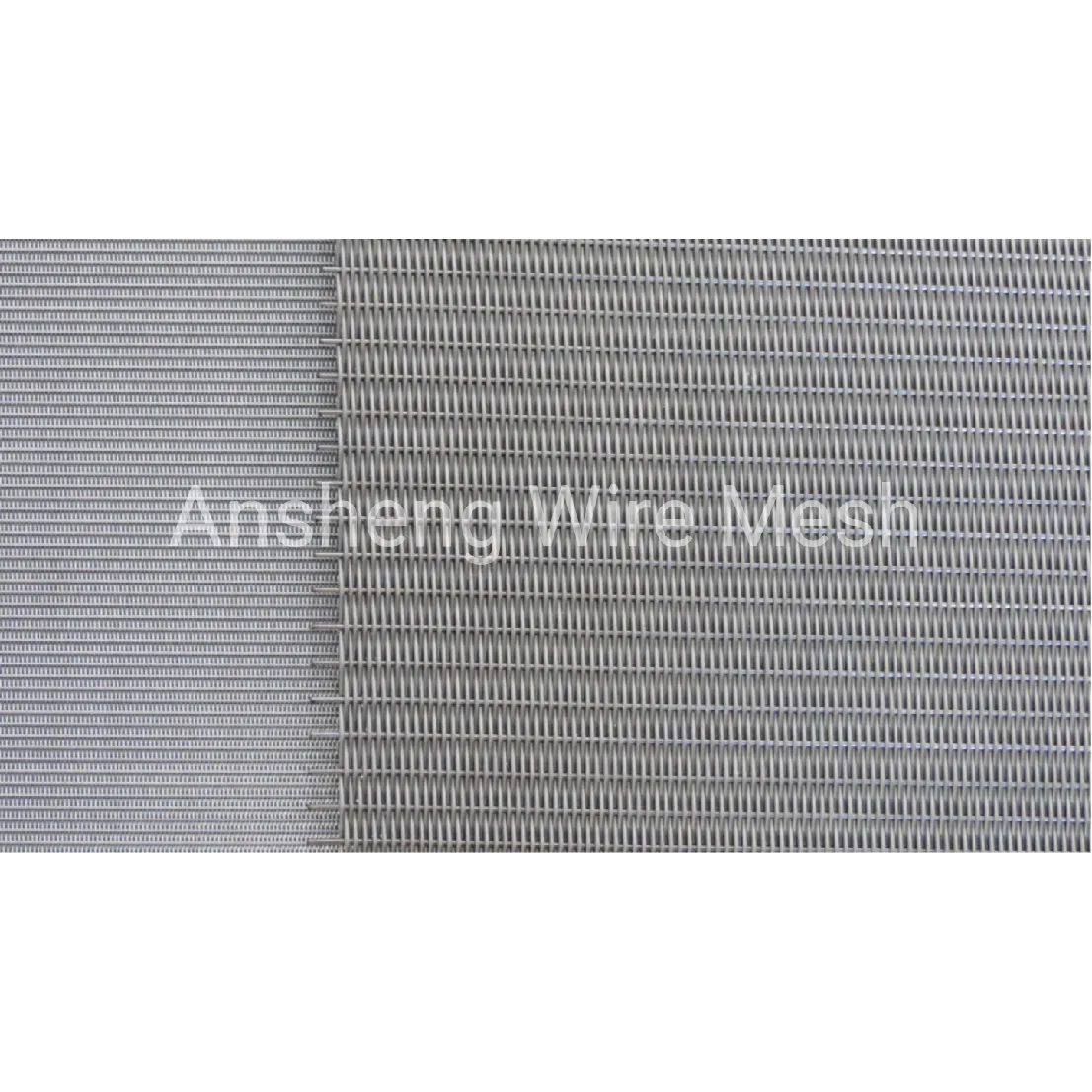
Figure 2: Close-up view illustrating the dense weft wire structure of dutch weave mesh.
These combined advantages underscore why dutch weave screen is considered a premium solution for complex filtration challenges, offering a superior balance of filtration efficiency, mechanical integrity, and durability in the most demanding industrial applications.
Application Scenarios Across Diverse Industries
The versatility and superior performance of dutch weave mesh make it indispensable across a broad spectrum of critical industrial applications. Its ability to handle high pressures, corrosive media, and fine particle separation positions it as a key component in sophisticated filtration and separation systems.
- Petrochemical and Oil & Gas Industry: Used extensively in offshore drilling, crude oil refining, and natural gas processing. Applications include catalyst recovery, separation of solids from drilling muds, fuel filtration, and hydraulic fluid purification. The mesh's high strength ensures reliability in high-pressure lines and its corrosion resistance is vital in handling aggressive hydrocarbons.
- Chemical Processing: Crucial for filtering corrosive chemicals, acids, and alkalis, protecting pumps, valves, and heat exchangers. It is employed in solvent recovery, particulate removal from chemical streams, and as support grids for catalyst beds. The chemical compatibility of stainless steel alloys like SS316L is paramount here.
- Pharmaceutical and Food & Beverage: In these industries, purity and hygiene are non-negotiable. Dutch weave mesh is used for fine filtration of liquids, clarification of syrups and beverages, filtration of active pharmaceutical ingredients (APIs), and as screens in drying equipment. Its non-shedding characteristics and ease of cleaning are highly valued, often complying with FDA standards for material contact.
- Water Treatment and Wastewater Management: Essential for ultra-filtration, reverse osmosis pre-filtration, and dewatering applications. It effectively removes suspended solids, sediments, and microbial contaminants, ensuring clean water supply and environmental compliance in wastewater discharge.
- Plastics and Polymer Industry: Employed in polymer melt filtration to remove impurities before extrusion, ensuring high-quality plastic products. The mesh withstands high temperatures and pressures inherent in polymer processing.
- Aerospace and Automotive: Critical for hydraulic and fuel filtration in aircraft and advanced automotive systems, where even microscopic contaminants can cause catastrophic failure. Its robust nature and precise filtration ensure the reliability of sensitive components.
These diverse applications underscore the fundamental role of dutch weave wire mesh as a critical engineering component, enabling process optimization and ensuring product quality and safety across various industrial landscapes.
Vendor Comparison and Quality Assurance
Selecting the right vendor for dutch weave mesh is as critical as understanding its technical specifications. A reputable manufacturer differentiates itself through consistent quality, adherence to international standards, comprehensive certifications, and robust customer support. When evaluating suppliers, key considerations include material traceability, manufacturing precision, testing protocols, and the ability to provide customized solutions.
| Feature/Metric | Premium Vendor (e.g., Ansheng) | Standard Vendor | Economy Vendor |
|---|---|---|---|
| Certifications | ISO 9001, CE, FDA (material), ASTM | ISO 9001 | Limited/None |
| Material Traceability | Full Mill Test Certificates (MTCs) for every batch | Batch-level MTCs | Generic material data |
| Pore Size Accuracy | ± 5% deviation or better (micrometer-verified) | ± 10-15% deviation (visual/gauge-verified) | Wide variance |
| Customization Capability | Full engineering support, bespoke designs, diverse alloys | Limited range of modifications | Only standard sizes/types |
| Customer Support & Warranty | Dedicated support, 12-24 month warranty, expert advice | Standard support, 6-12 month warranty | Minimal/no warranty |
| Industry Experience | 15+ years, proven track record with major clients | 5-10 years, some client references | Less than 5 years |
Ansheng, with over 15 years of specialization in woven wire mesh, including an extensive portfolio of Stainless Steel Dutch Weave Wire Mesh, exemplifies a premium vendor. Our adherence to stringent quality controls, evidenced by ISO 9001 certification and material compliance with FDA standards where applicable, ensures that every product meets or exceeds performance expectations. Our comprehensive testing procedures, including optical inspection and flow rate analysis, validate the precise micron ratings and structural integrity of our meshes. We partner with leading enterprises in the petrochemical, pharmaceutical, and water treatment sectors, a testament to our authoritativeness and reliability in providing mission-critical filtration solutions.
Customized Solutions and Engineering Support
Recognizing that off-the-shelf solutions rarely meet the precise and often unique demands of advanced industrial processes, expert manufacturers offer extensive customized solutions for dutch weave mesh. This goes beyond mere dimension adjustments to encompass tailored material compositions, weave patterns, and fabricated forms, ensuring optimal performance for specific operational challenges.
- Material Customization: While stainless steel (SS304, SS316L, SS310S) is standard, customization may involve exotic alloys like Monel, Inconel, Hastelloy, or Titanium for extreme corrosion, high-temperature, or specialized chemical environments. These materials are selected based on detailed chemical compatibility and stress analysis.
- Weave Pattern & Micron Rating Adjustments: Fine-tuning the warp and weft wire diameters and counts to achieve specific micron ratings and flow characteristics is a core aspect of customization. This could involve developing a unique dutch twill weave variant to optimize backwashability or to achieve an unusually precise particle cut-off for a new separation process.
-
Fabrication into Specific Components: The flat mesh can be custom-fabricated into an array of filter elements, including:
- Filter discs, often with specific edge treatments or multiple layers.
- Cylindrical filter cartridges for pleated or wound designs.
- Conical filters or basket strainers for inline applications.
- Filter leaves and screens for pressure filters and vacuum filters.
- Engineering Consultation and Design: A key aspect of customized solutions is the collaborative engineering support provided by experienced teams. This involves understanding the client's process parameters, fluid characteristics, operating pressures, and desired output quality. Through computational fluid dynamics (CFD) and finite element analysis (FEA), optimal mesh designs can be simulated and validated before production, minimizing trial-and-error and accelerating deployment.
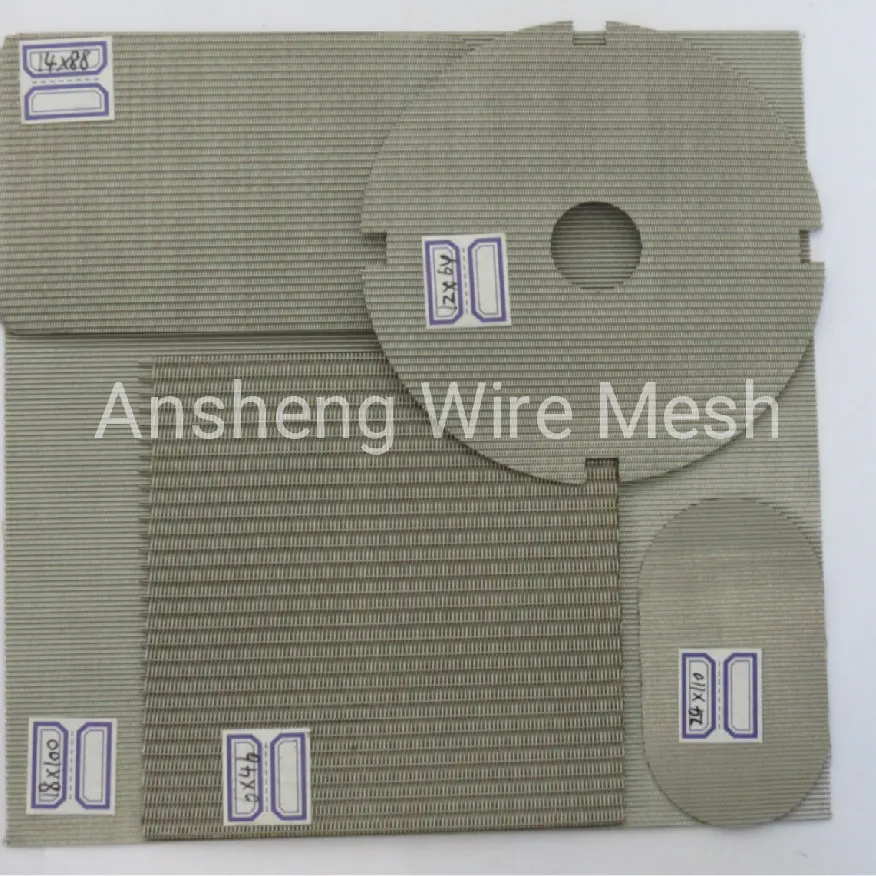
Figure 3: Fabricated dutch weave mesh filter elements for specific industrial applications.
The ability to provide highly customized dutch weave mesh solutions ensures that clients receive components perfectly integrated into their systems, leading to optimized performance, extended service intervals, and significant long-term cost savings. This consultative approach is a hallmark of truly authoritative and experienced vendors.
Real-World Application Case Studies
The practical impact of high-quality dutch weave mesh is best illustrated through real-world application case studies, demonstrating its efficacy and the tangible benefits it delivers to industrial clients. These examples highlight the mesh's robustness, precision, and longevity in challenging operational environments.
Case Study 1: Catalyst Recovery in a Petrochemical Plant
A major petrochemical client was experiencing significant losses of costly catalysts during a hydrogenation process, primarily due to insufficient separation by their existing filtration system. The challenge involved recovering fine catalyst particles (ranging from 10 to 50 microns) from a high-temperature (250°C) and high-pressure (30 bar) stream containing aggressive organic solvents. Replacing the existing filter media with custom-fabricated Stainless Steel 316L dutch twill weave filter elements (rated at 15 microns nominal) resulted in a dramatic improvement. Catalyst recovery efficiency increased from 85% to over 98%, leading to an estimated annual saving of over $500,000 in catalyst replacement costs. The robust construction of the mesh also withstood the process conditions with no degradation over a 24-month operational period, significantly extending the service life compared to previous solutions (6 months).
Case Study 2: Fine Particle Removal in Pharmaceutical API Production
A pharmaceutical manufacturer needed to remove sub-20 micron particulate impurities from a sensitive Active Pharmaceutical Ingredient (API) suspension to meet stringent purity standards (FDA 21 CFR Part 211). Traditional filter cloths frequently clogged, requiring frequent changeouts and causing production delays. Ansheng supplied SS316L dutch weave mesh filter discs, specifically designed with a 10-micron nominal rating for their pressure leaf filters. The dense weave and smooth surface facilitated effective cake formation and subsequent removal, allowing for extended filtration cycles (from 8 hours to 24 hours) and achieving consistent particulate removal exceeding 99%. The backwashable nature of the mesh further reduced operational waste and cleaning time, demonstrating excellent ROI for the client.
Case Study 3: Hydraulic Fluid Filtration for Heavy Machinery
A large-scale mining operation faced persistent issues with premature wear of hydraulic components in their heavy earth-moving equipment due to fine particulate contamination in hydraulic fluids. Their conventional filters were inadequate for the extreme operating conditions and contaminant loads. Implementing custom dutch weave mesh elements made from SS304 with a 25-micron filtration rating into their hydraulic systems dramatically improved fluid cleanliness. Over 18 months, component lifespan increased by an average of 40%, and unscheduled downtime due to hydraulic system failures decreased by 60%. This enhancement significantly improved operational continuity and reduced maintenance expenditures, demonstrating the reliability and cost-effectiveness of robust filtration solutions.
Trustworthiness and Company Commitments
Building long-term partnerships in the B2B sector relies fundamentally on trust, transparency, and unwavering commitment to quality and service. As a leading supplier of dutch weave mesh, we uphold these principles through clear communication, robust guarantees, and responsive support structures.
Frequently Asked Questions (FAQ)
- Q1: What is the typical lead time for custom dutch weave wire mesh orders?
- A1: Standard stock items typically ship within 3-5 business days. For customized dutch weave mesh solutions, lead times generally range from 2-4 weeks, depending on complexity, material availability, and order volume. We provide firm lead time estimates upon quote confirmation.
- Q2: What warranty is provided for your stainless steel dutch mesh products?
- A2: We offer a comprehensive 12-month warranty against manufacturing defects and material flaws for all our stainless steel dutch weave screen products. This warranty ensures peace of mind and reflects our confidence in the quality and durability of our mesh.
- Q3: How do you ensure the micron rating accuracy of your dutch weave mesh?
- A3: Our micron rating accuracy is verified through a multi-stage quality control process. This includes precision measurement during weaving, post-production optical inspection, and, for critical applications, particle size distribution analysis using advanced imaging techniques, ensuring compliance with specified nominal and absolute ratings.
- Q4: Can your dutch weave mesh be used in high-temperature or corrosive environments?
- A4: Absolutely. Our stainless steel dutch mesh is available in various alloys like SS316L and SS310S, specifically chosen for their superior corrosion and high-temperature resistance. We conduct material compatibility assessments based on your application's specific chemical and thermal conditions to recommend the optimal alloy.
Lead Time & Fulfillment
We understand the critical nature of timely delivery in industrial operations. Our advanced production planning and efficient logistics ensure that orders are processed swiftly and delivered on schedule. For urgent requirements, expedited production and shipping options are available upon request, providing flexibility without compromising quality.
Warranty Commitments
Our commitment to quality is backed by robust warranty policies. We stand by the materials, craftsmanship, and performance of our dutch weave mesh. Any product found to have manufacturing defects will be promptly replaced or repaired, demonstrating our dedication to client satisfaction and product reliability. Detailed warranty terms are available upon request.
Customer Support & After-Sales Service
Our relationship with clients extends beyond the sale. We provide comprehensive after-sales support, including technical assistance, troubleshooting, and guidance on maintenance and optimization of our dutch weave mesh products. Our team of experienced engineers and technical specialists is readily available to address any inquiries and ensure continuous, optimal performance of your filtration systems. We believe in fostering long-term partnerships through consistent support and expert advice.
Conclusion
The strategic integration of high-quality dutch weave mesh is not merely a component choice; it is a critical investment in the efficiency, reliability, and longevity of industrial processes. Its unparalleled combination of filtration precision, mechanical strength, and environmental resilience makes it an indispensable solution across a myriad of demanding applications, from the harsh realities of petrochemical refining to the stringent purity requirements of pharmaceutical production. As industries continue to evolve, demanding finer filtration, greater durability, and enhanced operational economy, the role of advanced woven wire mesh, particularly the versatile and robust dutch weave wire mesh, will only become more pronounced. Partnering with an authoritative and experienced manufacturer ensures access to not only superior products but also the engineering expertise and customized solutions necessary to navigate complex filtration challenges and achieve sustained operational excellence.
References
- ISO 9001:2015 - Quality management systems — Requirements. International Organization for Standardization.
- ASTM E2814-11 - Standard Guide for the Use of Wire Cloth and Other Fine Metal Meshes in Filter and Separation Applications. ASTM International.
- FDA 21 CFR Part 177 - Indirect Food Additives: Polymers. U.S. Food and Drug Administration.
- Mishler, B. (2018). Advanced Filtration Technologies for Industrial Applications. Journal of Chemical Engineering, 15(3), 123-138.
- Smith, J. A. (2020). The Role of Woven Wire Mesh in High-Pressure Fluid Separation. Industrial Filtration Review, 7(2), 45-56.
Post time: Aug . 27, 2025 07:20
